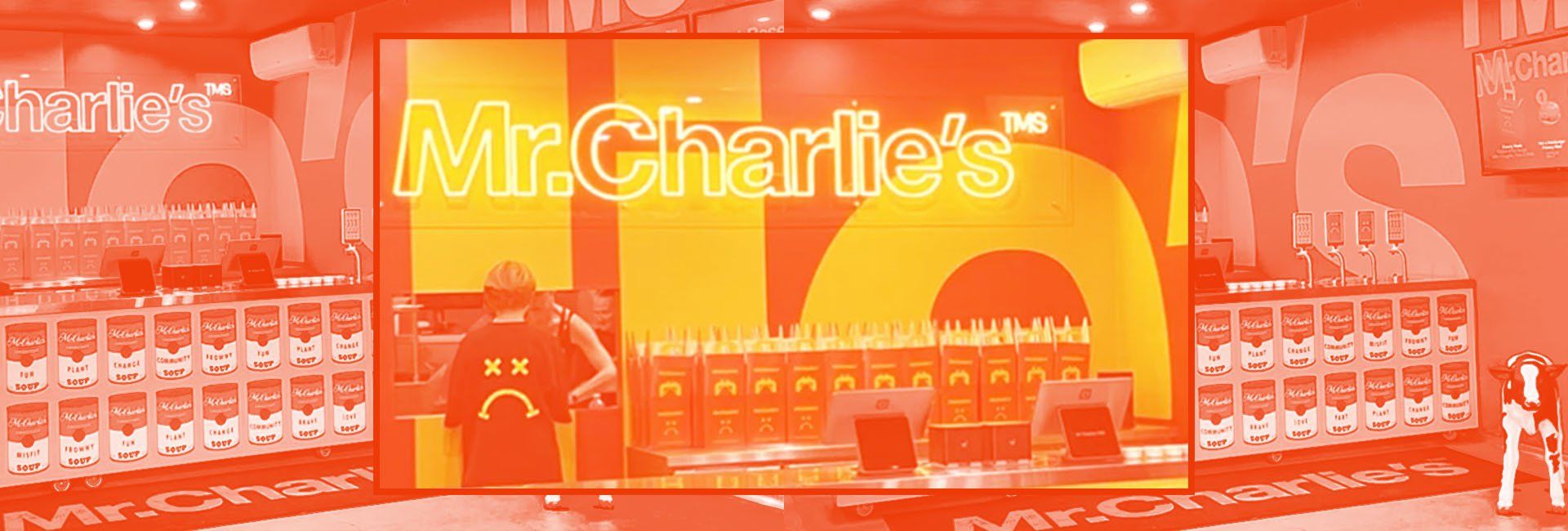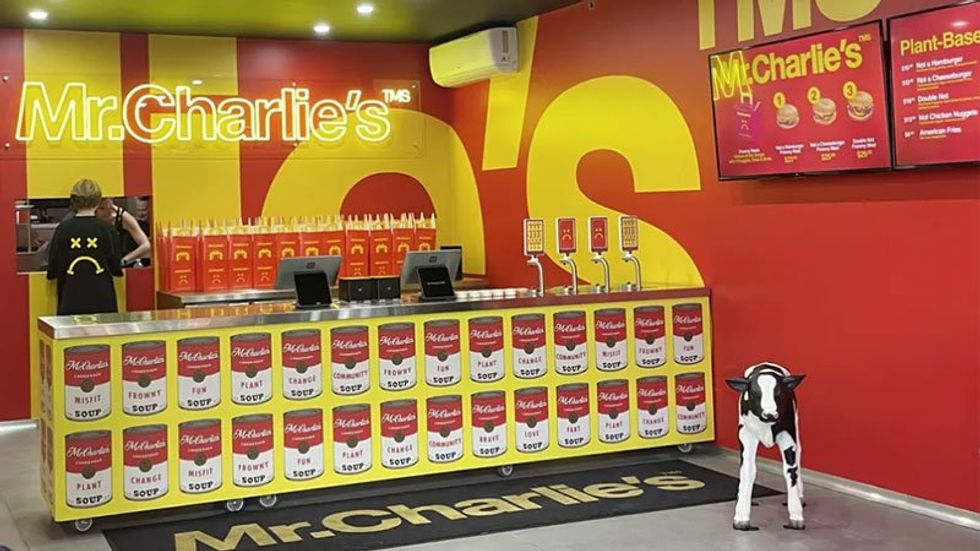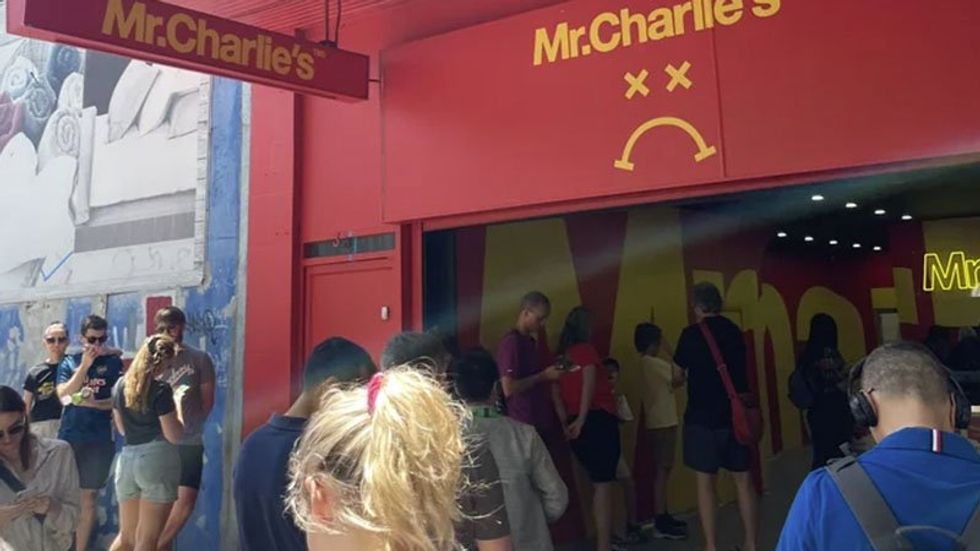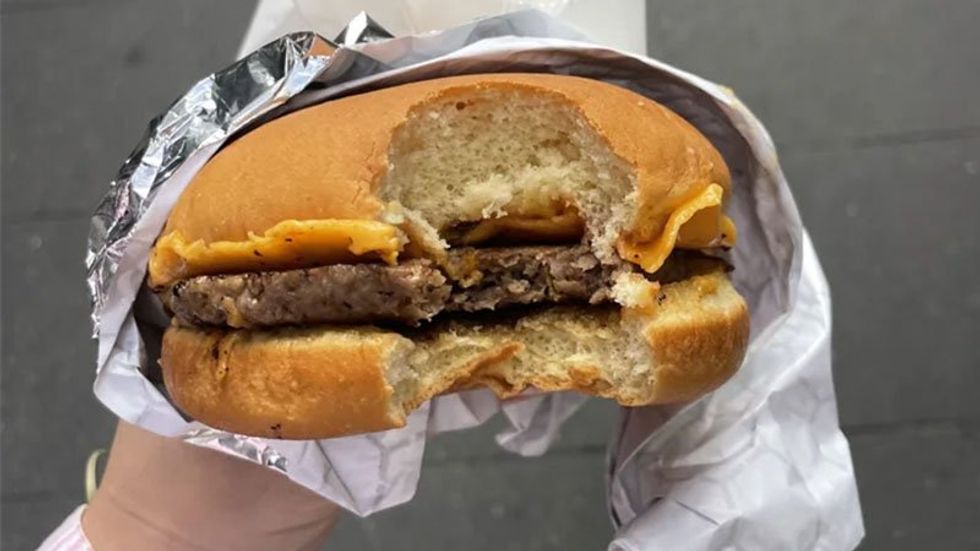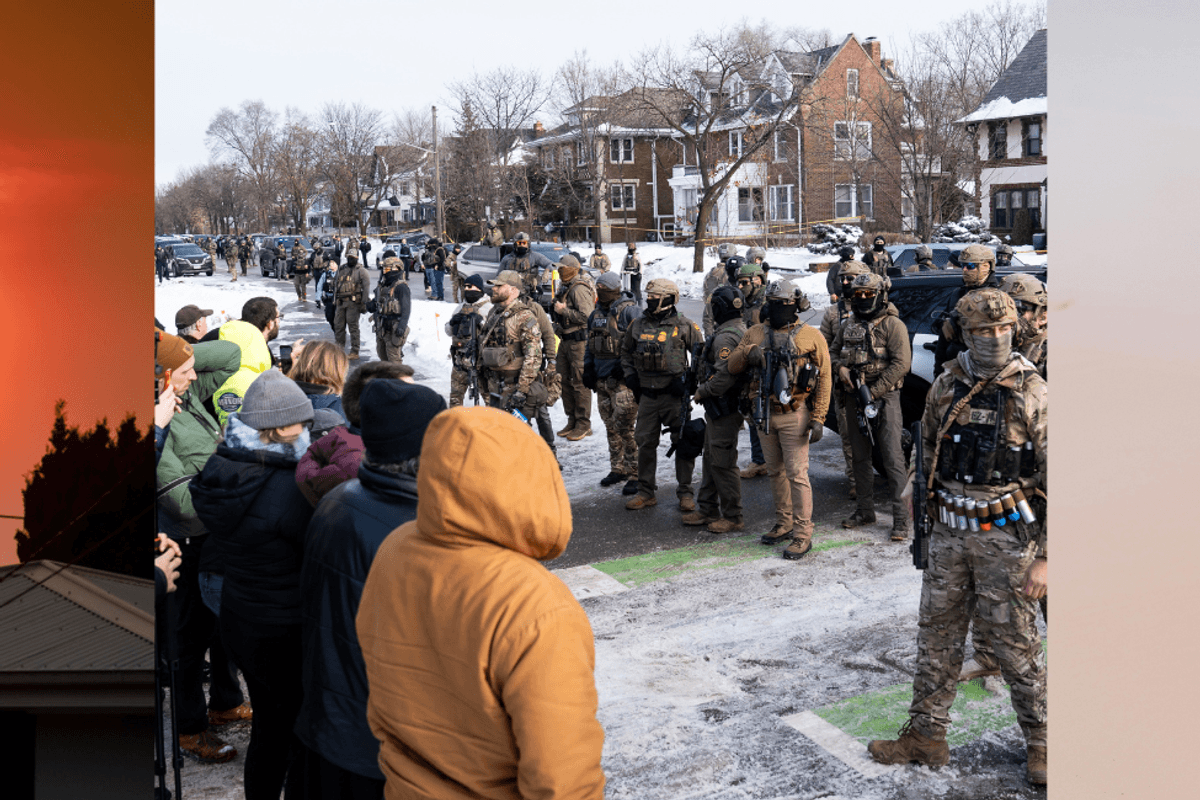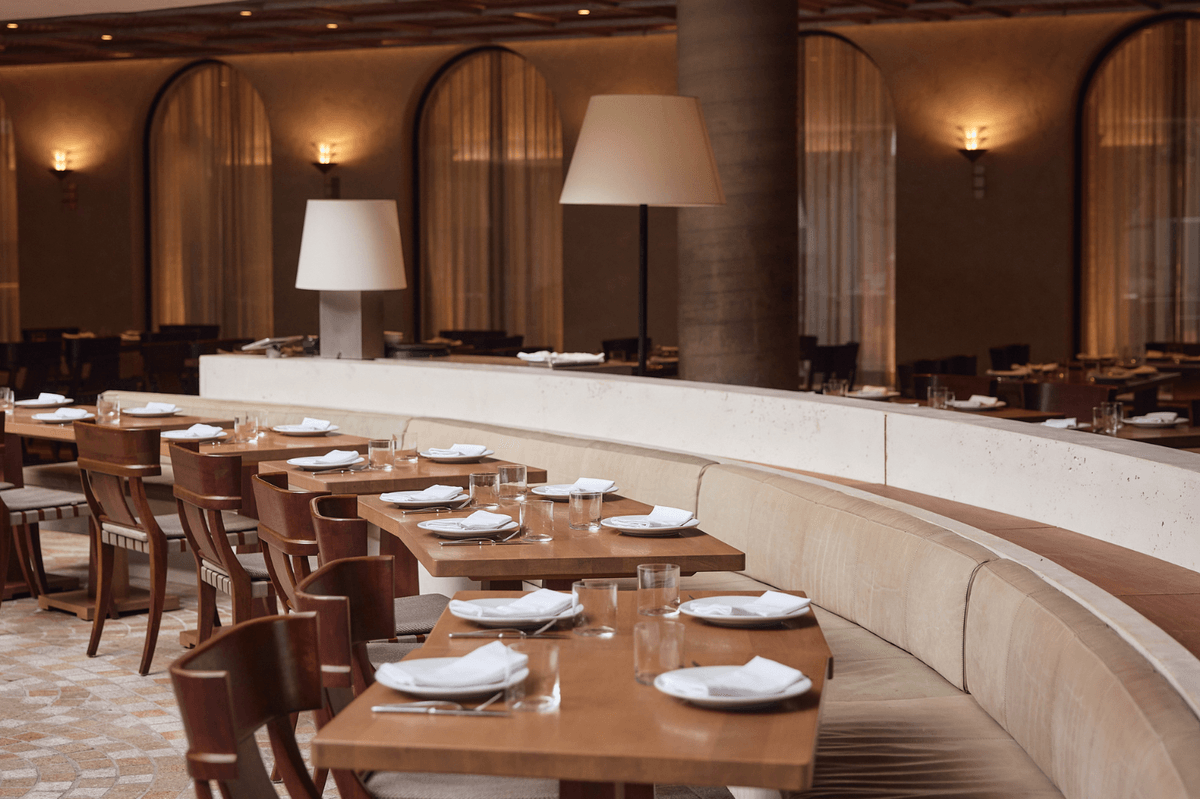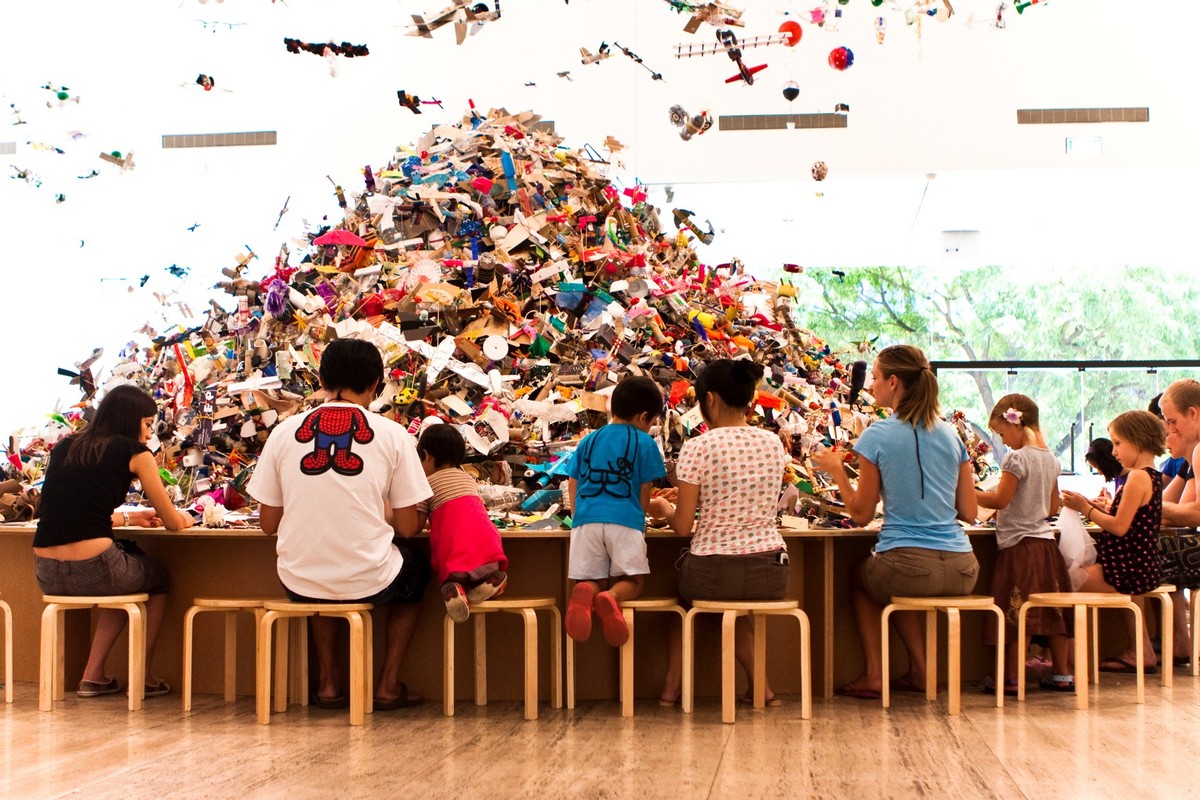Click through to Best of 2024 to discover the Newsworthy articles with greatest impact: whether by highest page views, social media engagement or recognition in national awards.
When the 100 per cent plant-based US fast-food chain Mr. Charlie's chose Sydney's inner city suburb of Redfern as its first international location, it seemed an unlikely choice. That is until you know the life story of co-founder Taylor McKinnon.
The brand has gone viral on social media because its red and yellow colour scheme and meal names (Frowny meals) draw comparisons to another global fast-food restaurant chain, but that is not what the franchise wants to be known for.
McKinnon’s journey to becoming the co-founder and brand director of the now multinational chain has been somewhat turbulent. He credits this turbulence as the purpose behind Mr. Charlie’s ventures of which there are three in California as well as the Redfern franchise.
“I was homeless in Los Angeles. I had lost everything that I owned and was put in a position of regrowth, rebuilding, rebirth,” McKinnon told Newsworthy in a Facetime interview from Los Angeles. “I got to use my past experience of being homeless because I lived at a homeless shelter in Los Angeles that looked after me for quite a few months.
Now, Mr. Charlie's only hires people in need. “We've employed 44 people in California so far, that were homeless, that had no opportunities. We've rehabilitated every single one of them. Well, they did, we just created an opportunity, they did the work.”
'I'm mind blown about [this job], I really am. It puts faith back in, that there's good people out there still.'
This business model, only employing people in need, is what drove McKinnon, who has previously lived in Sydney, to pick Redfern as their next store location and first international franchise. “When I was in Sydney, I watched a movie called Rabbit Proof Fence. It really touched me, and I never was able to kind of get it out of my head,” McKinnon said.
When his business partners asked him to choose the Australian location, he said: “Let’s go to Redfern, let’s be 80 per cent Aboriginal-employed. If you strip back all of what you see in Australia … you'll find those people [Indigenous Australians] that created the land for us and they created the ways and the culture.”
Mr. Charlie’s has been true to this goal, hiring around 80 per cent of Redfern staff from Indigenous backgrounds, with many of the staff dealing with poverty, homelessness or having recently emerged from prison.
Mr. Charlie's Sydney franchisee, Lisa Chikarovski has worked with the Aboriginal Employment Strategy (AES), a 100 per cent Indigenous-owned and operated service that connects First Nations Australians with employment. “We saw them on the same street and thought ‘you’ve got to be kidding!’ Chikarovski said. “The National Centre of Indigenous Excellence is a stone’s throw away, Tribal Warrior is down there, and then AES is a few doors down.”
Mr. Charlie’s had been due to open in March last year but a fire delayed the launch and prospective staff moved on to other work. In October, they started recruitment from scratch with the help of AES just before the soft opening and free "not a hamburger" day.
“We had people [before the fire] and then we lost the people because they went and got other jobs. I think the turnaround was within a week of, ‘we're about to open, can you find people?’” said Rebecca Ryan from AES.
Since 1997, AES have been providing employment opportunities to Indigenous Australians. Their philosophy is that past experiences or decisions should not impact a person’s ability to find work.
“Everyone has a story. The reason why I do what I do now is because I had a rough upbringing and made some poor choices in life,” Ryan said. “That's why I give back to community now in Australia. If I can do something and succeed, then so can they.
“There are a lot of people in Mr. Charlie's that have come from various backgrounds.”
Wanda, a 49-year-old Bundjalung woman, who asked her name be withheld for privacy reasons, has experienced poverty, incarceration, drug abuse, and domestic violence, got a job at Mr. Charlie’s through the AES just days after walking into the agency, desperate for work.
“I said to myself, ‘I'm not going to go home until something happens or I get something, a job,’” Wanda said. “I went down to the AES ... [Rebecca] mentioned Mr. Charlie's. I'm willing to do anything at this point. Then she walked me up to Mr. Charlie’s and I'm here today. They don't ask for any history, like a criminal record check, or all these bloody papers that they need these days which was a bonus for me.”
This approach to background checks is consistent across the Mr. Charlie’s franchises. Other companies may see this system as too risky, but McKinnon is an advocate for support rather than rejection.
“You've got this little thing that's hindering you of your past. A lot of employers won't look past it…they just think that they're going to have to deal with something,” he said.
“We know that we're going to have to deal with something later within the journey. We've done with everybody in some way, but we're prepared for it.
“What's needed is love, unconditional love…work out your credit, help you get bank accounts, some therapy, and some training.”
It's in this attitude to its employees that Mr. Charlie’s stops being a fast-food chain and becomes a social enterprise. The food, while 100 per cent vegan and better for animals and the planet than its non-vegan counterparts, is not the focus of the brand.
“Mr. Charlie's is a filter, so there's a big reason why we're here. It's not for the hamburgers. The burgers are just a distraction,” McKinnon said.
For Wanda: “I'm mind blown about [this job], I really am. It puts faith back in, that there's good people out there still."
As for the plant-based aspect of the food, for many of the Mr. Charlie’s employees and for Ryan from AES, it is their first experience with vegan fast food.
“I never had any knowledge about it, until this shop here, now I'm learning about it. And I love the bloody food!” laughed Wanda.
“What I found funny was placing a whole bunch of, we say black fellas, in a vegan restaurant. Everyone hears vegan and goes, ‘oh no’, but no, the team are all smiling,” Ryan said. “They're loving it. They think it's great because they're in the heart of Redfern. They’re serving people and all getting along really well.”
Em is a UNSW Bachelor of Media (Communications and Journalism) graduate. She is a big fan of RuPaul's Drag Race, vegan food, and reformer pilates!

